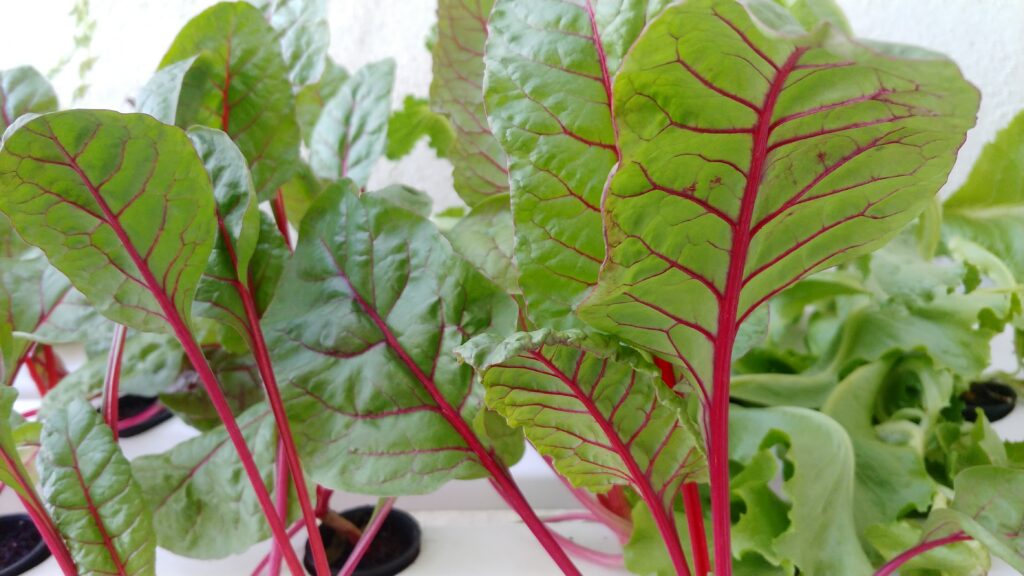Imagine a world where you can grow fresh, pesticide-free produce all year round, in any climate, without the need for soil. Instead, plants are grown in nutrient-rich water solutions, allowing them to absorb exactly what they need for optimal growth. This innovative farming method is known as hydroponics, and it is revolutionizing the way we think about agriculture. But is hydroponic really healthier than organic? In this article, we’ll explore the benefits of hydroponics and compare them to traditional organic farming methods, uncovering the truth behind this heated debate.
Overview of Hydroponics and Organic Farming
Hydroponics is a method of growing plants without soil, where the roots are submerged in nutrient-rich water or supported by an inert medium. On the other hand, organic farming refers to a system of agriculture that avoids synthetic fertilizers, pesticides, and genetically modified organisms (GMOs) and instead focuses on natural methods of pest control and soil fertility. Both hydroponics and organic farming have gained popularity in recent years due to their potential to produce high-quality, nutritious crops.
Nutritional Value
When it comes to comparing the nutrient content of hydroponic produce and organic produce, it is important to note that both can provide a rich array of vitamins, minerals, and antioxidants. However, the nutrient levels in both types of crops can be influenced by several factors. In hydroponic systems, the nutrient content can be controlled more precisely, as the plants are supplied with a customized nutrient solution. On the other hand, organic crops tend to benefit from the presence of microorganisms in the soil, which can enhance the availability of certain nutrients.
The impact of hydroponic and organic farming practices on nutritional value is a subject of ongoing research. Some studies suggest that hydroponic crops may have higher levels of certain nutrients, while others argue that organic crops can possess greater phytochemical diversity. Ultimately, the nutritional value of a crop depends on various factors such as the specific cultivar, growing conditions, and post-harvest handling. Further research is needed to elucidate the potential differences in nutrient content between hydroponic and organic crops.

Pesticide and Chemical Use
When comparing pesticide use in hydroponic and organic farming, it is crucial to understand that organic farming strictly prohibits the use of synthetic pesticides. Instead, organic farmers rely on natural methods such as crop rotation, biological pest control, and the use of organic-approved pesticides. Hydroponic systems, on the other hand, do not inherently require the use of pesticides, as the absence of soil can reduce some pest pressures. However, pests can still pose a threat in hydroponics, and in such cases, integrated pest management strategies are typically employed.
Both hydroponic and organic crops can be subject to chemical residues. In organic farming, the potential for chemical residues is minimized due to the avoidance of synthetic pesticides. However, there is still a possibility of contamination through environmental factors or improper handling. In hydroponics, the absence of soil can reduce the risk of chemical contamination, but careful monitoring of the nutrient solution is essential to prevent the introduction of harmful substances.
The effects of pesticide and chemical residues on human health are a concern for consumers. Organic farming’s reduced use of synthetic pesticides may provide some reassurance, and the adherence to organic standards can help ensure safer food options. However, it is important to note that regulatory authorities set maximum residue limits for all crops, and farmers must comply with these standards to ensure consumer safety.
Environmental Impact
Water usage is a critical factor to consider when comparing hydroponic and organic farming. In hydroponic systems, water is recirculated, which can lead to significant water savings compared to traditional soil-based farming. Additionally, the controlled environment of hydroponics allows for more efficient water use, as the nutrient solution can be precisely dosed and recycled. In contrast, organic farming relies on natural rainfall and traditional irrigation methods, which may lead to higher overall water consumption.
Land usage is another aspect to consider. Hydroponic systems can be vertically stacked or implemented in smaller spaces, allowing for higher crop yields per unit area. This makes hydroponics particularly suitable for urban farming or areas with limited arable land. Organic farming, on the other hand, typically requires more land due to its reliance on crop rotation and a diversified ecosystem to maintain soil fertility.
Energy consumption is an important consideration for sustainable farming practices. Hydroponic systems often require artificial lighting and climate control equipment, increasing energy demands. Organic farming, on the other hand, relies on natural sunlight and traditional farming techniques, which generally consume less energy. However, it is worth noting that advancements in energy-efficient technologies for hydroponics are continuously being developed, which can help mitigate the environmental impact.

Quality and Taste
When it comes to the comparison of flavor and taste in hydroponic and organic produce, personal preferences play a significant role. Some argue that hydroponically grown crops can have a milder taste due to the controlled environment and absence of soil-borne pathogens. However, others argue that organic farming practices, such as soil enrichment and crop rotation, can contribute to enhanced flavor profiles.
Consumer preferences for hydroponic and organic crops may vary depending on their individual priorities. Some individuals prioritize organic produce due to its perceived naturalness and sustainability, while others prioritize hydroponic produce for its potential year-round availability and reduced reliance on pesticides.
Market demand for hydroponic vs organic products can fluctuate based on factors such as consumer awareness, market trends, and pricing. The increasing demand for organic produce in recent years has led to a market expansion, with a growing number of consumers willing to pay a premium for certified organic products. Meanwhile, the popularity of hydroponic produce has also been on the rise, fueled by its potential to supply fresh and locally grown crops regardless of season.
Food Safety
In terms of the risk of contamination, both hydroponic and organic crops can be vulnerable, although the sources of contamination may differ. In hydroponics, the absence of soil significantly reduces the risk of soil-borne pathogens such as E. coli and Salmonella. However, the water source and nutrient solution need to be carefully monitored to prevent the introduction of pathogens. In organic farming, the use of compost and manure can introduce pathogens into the soil, leading to a potential risk of contamination. However, proper composting techniques and adherence to organic standards can mitigate this risk.
The microbiological safety of hydroponic and organic produce can be ensured through good agricultural practices and compliance with regulatory standards. Both hydroponic and organic crops are subject to regular inspections and testing to verify their safety. It is important for farmers and consumers to be aware of potential risks and take appropriate measures to ensure the safety of the produce consumed.
Regulatory standards for hydroponic and organic farming vary depending on the country and certifying body. Organic farming is governed by specific regulations that define what practices and inputs are allowed or prohibited in the production process. Hydroponic systems can also be certified as organic if they meet the established criteria. Compliance with regulatory standards is essential to provide consumers with confidence in the safety and integrity of the products they purchase.

Crop Yield and Productivity
Comparing crop yield in hydroponic and organic farming can be complex due to various factors that can influence productivity. Hydroponic systems have the potential to achieve higher yields per unit area due to the optimized growing conditions and year-round production capabilities. The absence of soil-borne diseases and pests in hydroponics can also contribute to increased crop productivity. However, it is important to note that the initial investment costs and ongoing maintenance requirements of hydroponic systems can impact overall profitability.
Organic farming, while generally associated with lower crop yields, focuses on long-term soil health and sustainability. The emphasis on crop rotation and diversified ecosystems can improve soil fertility and resilience, which is crucial for long-term productivity. Organic farming systems also promote biodiversity and can provide ecological benefits, such as supporting beneficial insects and reducing environmental harm.
The economic viability of hydroponic vs organic farming depends on various factors, including market demand, production costs, and access to resources. Hydroponic systems often require significant initial investments in infrastructure and technology, such as lighting and climate control equipment. Organic farming, on the other hand, may require more labor-intensive practices and may incur additional costs associated with organic certification.
Accessibility and Scalability
The availability of hydroponic and organic produce varies depending on the region and local market. Hydroponics can be implemented in various settings, including urban areas and regions with limited access to arable land. The year-round availability of hydroponic produce can help address food deserts and provide fresh crops in areas where traditional farming may be challenging. Organic produce, on the other hand, is becoming increasingly accessible as the demand for organic products continues to grow. However, organic farming may be limited by factors such as climate suitability and the availability of organic inputs.
The scalability of hydroponic and organic farming systems also depends on various factors. Hydroponic systems, due to their vertical and compact nature, have the potential for high crop yields in smaller spaces. This scalability makes hydroponic farming suitable for urban environments or areas with limited land resources. Organic farming, while generally requiring more land, can benefit from community-supported agriculture (CSA) models and cooperative farming approaches to increase accessibility and scalability.
Challenges and limitations of scaling hydroponic and organic systems include the high initial investment costs, ongoing maintenance requirements, and the need for specialized knowledge and skills. Additionally, the transition from conventional farming practices to organic or hydroponic methods may require time and resources, which can pose challenges for some farmers. Collaboration between researchers, practitioners, and policymakers is essential to address these challenges and promote the broader adoption of sustainable farming practices.
Resource Efficiency
Water and fertilizer use efficiency is a significant aspect of sustainable farming practices. In hydroponics, water use efficiency is enhanced by recirculating and carefully dosing the nutrient solution. This reduces water wastage and allows for precise control over the plants’ nutrient intake. Organic farming, in contrast, relies on natural rainfall and traditional irrigation methods. While organic farming may consume more water overall, careful water management techniques such as mulching and drip irrigation can improve water use efficiency.
Both hydroponic and organic farming systems aim to use resources sustainably. Hydroponics, with its controlled environment and precise nutrient delivery, can minimize fertilizer use and reduce nutrient runoff, thus addressing environmental concerns associated with excess fertilizer application. Organic farming promotes sustainable soil management practices such as the use of cover crops, composting, and crop rotation, which can enhance soil fertility and reduce erosion.
Mitigation of environmental impact through technological advancements is an ongoing focus in both hydroponic and organic farming. The development of energy-efficient lighting systems, improved water recirculation techniques, and the use of renewable energy sources can help reduce the environmental footprint of hydroponics. Similarly, organic farming can benefit from advancements in organic pest control methods and innovative soil management techniques that promote soil health and biodiversity.
Conclusion
In conclusion, the comparison of hydroponic and organic farming reveals the distinct characteristics and considerations of each approach. Both hydroponic and organic farming have the potential to provide nutritious produce with their unique advantages and challenges. While hydroponics can offer year-round availability, precise nutrient control, and higher yields per unit area, organic farming focuses on long-term soil health, biodiversity, and reduced synthetic inputs.
Personal preferences, market demand, and environmental factors play a significant role in determining the suitability of hydroponic or organic produce. It is essential to consider individual priorities, information on nutritional value, environmental impact, pesticides, and food safety when making informed decisions about food choices.
The future prospects and potential for hybrid systems that combine the best elements of hydroponic and organic farming hold promise in addressing the diverse needs of consumers and achieving sustainable and resilient food production systems. Continued research, innovation, and collaboration are vital to advancing both hydroponic and organic farming and ensuring a healthier and more sustainable future for agriculture.




